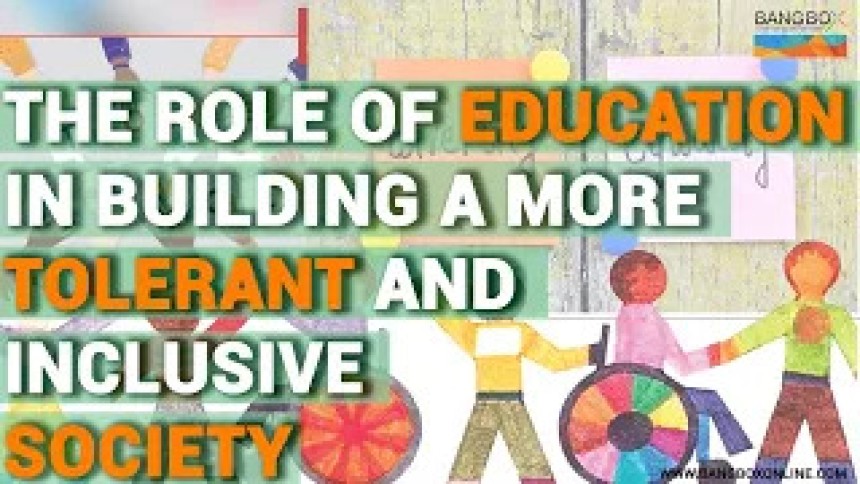
The Role of Education in Building a More Tolerant and Inclusive Society || Bang Box Online Official
Education plays a vital role in shaping individuals' beliefs, attitudes, and values. It has the power to transform societies and contribute to the creation of a more tolerant and inclusive world. By fostering empathy, understanding, and respect for diversity, education can help bridge divides, challenge biases, and promote a culture of acceptance. Here are key aspects of the role of education in building a more tolerant and inclusive society:
- Promoting Cultural Understanding: Education provides opportunities to learn about different cultures, traditions, and perspectives. By incorporating diverse cultural content into curricula, education helps individuals develop an appreciation for cultural diversity. Exposure to different perspectives fosters empathy, breaks down stereotypes, and promotes a sense of belonging and acceptance.
- Developing Critical Thinking and Media Literacy: Education equips individuals with critical thinking skills and media literacy, enabling them to analyze and evaluate information critically. In an era of widespread misinformation, these skills are essential to challenge biases, combat stereotypes, and form well-informed opinions. Education empowers individuals to question stereotypes, examine multiple viewpoints, and make informed decisions based on evidence.
- Fostering Social and Emotional Learning: Education goes beyond academic learning and encompasses social and emotional development. By promoting social and emotional learning (SEL), education nurtures empathy, self-awareness, and interpersonal skills. SEL programs cultivate respect, empathy, and cooperation, preparing individuals to engage in respectful and inclusive interactions with others.
- Encouraging Inclusive Teaching Practices: Inclusive teaching practices promote equal opportunities and address the diverse learning needs of students. Education institutions can embrace inclusive pedagogies that consider individual differences, accommodate diverse learning styles, and create safe and inclusive learning environments. Inclusive education ensures that every student feels valued and included, regardless of their background, abilities, or identities.
- Emphasizing Human Rights Education: Education can play a significant role in promoting human rights and social justice. By integrating human rights education into curricula, students gain an understanding of fundamental rights, equality, and justice. Human rights education empowers individuals to challenge discrimination, advocate for equality, and become active participants in building a fair and inclusive society.
- Encouraging Intercultural Dialogue: Education provides platforms for intercultural dialogue and interaction. Through collaborative projects, cultural exchange programs, and multicultural events, education fosters meaningful connections among individuals from different backgrounds. Intercultural dialogue encourages the sharing of experiences, perspectives, and values, leading to increased understanding, respect, and acceptance.
- Addressing Bias and Prejudice: Education plays a crucial role in addressing bias, prejudice, and discrimination. By teaching about the historical and contemporary impacts of bias, education helps individuals recognize and challenge their own biases. Education can actively promote inclusive and anti-discriminatory attitudes, preparing individuals to be active allies in combating injustice and promoting equality.
Education holds immense potential to shape future generations and build a more tolerant and inclusive society. By promoting cultural understanding, critical thinking, social and emotional learning, inclusive teaching practices, human rights education, intercultural dialogue, and addressing bias, education can help foster a society where diversity is celebrated, and every individual is respected and valued. It is through education that we can lay the foundation for a more equitable and inclusive world.
Follow us on:
Platform: https://www.bangboxonline.com/
Facebook: https://www.facebook.com/bangboxonline/

Elan The Emperor: Redefining Luxury Living in Sector 106, Gurgaon
Gurgaon, often called the millennium city, is renowned for its modern infrastructure and u...

